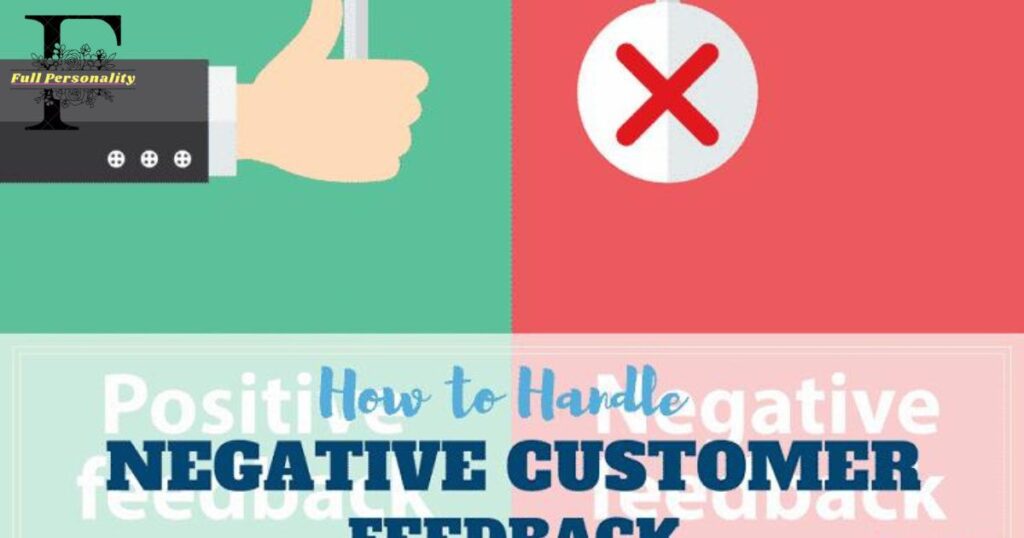A personality hire focuses on who you are, not just what you can do. They look for people who will be enjoyable to work with and make everyday interactions more pleasant. It’s about finding candidates who will create a happy, energetic atmosphere through their upbeat nature and ability to get along with others.
This Hiring for personality can change that. When companies seek out cheerful colleagues who get along with everyone, the whole tone brightens. Now meetings are less of a chore and coworkers actually enjoy collaborating. Morale soars as relationships strengthen between upbeat team members.
A personality hire values character traits as highly as technical abilities. Employers making these hires want employees who are pleasurable to be around. They aim to bring joy to the workplace through hires whose sunny dispositions brighten each day.
You may want to Read: Most Common Personality Type
What Is Organizational Culture Fit?
| No. | Point |
|---|---|
| 1 | Organizational culture fit refers to how well an individual’s values, beliefs, and behaviors align with the culture of a company. |
| 2 | It is crucial for employee satisfaction, engagement, and long-term success within an organization. |
| 3 | Assessing cultural fit during the hiring process can lead to better team dynamics and reduced turnover rates. |
| 4 | However, it’s essential to balance cultural fit with diversity and inclusion to ensure a variety of perspectives within the organization. |
| 5 | Companies can promote cultural fit through clear communication of values, inclusive hiring practices, and ongoing cultural assessments. |
Organizational culture fit refers to how well a person’s values and personality match the company’s culture and way of doing things. When hiring, companies consider whether a candidate will blend in with and positively contribute to the existing work environment.
You may want to Read: Personality step by step
A good culture fit means the individual will naturally fit in with team norms and embrace the core priorities and unwritten rules that guide how the organization operates. Finding the right cultural fit is beneficial both for the employee and employer. Workers who mesh with the culture tend to be more satisfied and productive in their roles.
Why Is Personality Important When Hiring Engineers?
Engineers often work collaboratively on projects and need to interact regularly with colleagues from different specializations. While technical skills are crucial, an engineer’s personality also impacts how well they integrate and contribute as part of a team.
Those with friendly, easygoing personalities tend to build stronger relationships which fosters better cooperation and productivity over the long term. They create a work environment where people enjoy working together and helping each other solve problems. Additionally, as technologies age engineers must be adaptable and open to learning new skills.
A rigid personality may resist change more while a flexible one continues progressing. Creative engineers able to think outside the box also drive innovation companies rely on for competitive advantage. Their passion contributes to building a resilient, proactive work culture. Personality profoundly shapes experience and performance, so hiring those with teamwork traits alongside technical merit is wise for engineering departments.
Company Culture Fit And Diversity

While finding candidates who are a culture fit is important, companies must be careful not to homogenize their workforce. True diversity enhances culture by bringing in fresh perspectives and ideas. Those from different backgrounds may approach problems in new ways and better relate to diverse markets.
When inclusion is part of the culture, it creates a sense of belonging for all. A varied mix of people fosters understanding and prevents biases or assumptions. Rather than only seek specific traits, companies can strive to build a culture accepting of different talents, styles and life experiences.
An environment where uniqueness is valued allows the best ideas to surface regardless of who proposed them. Overemphasizing fit risks missing out on highly skilled candidates who could nevertheless thrive in a welcoming culture. Fit depends more on factors like ethics, teamwork and respect than on appearance alone. Prioritizing both diversity and belonging strengthens any organization.
6 Interview Questions To Determine Personality Fit
Do you prefer to work independently or as part of a team?
Both independent work and teamwork have benefits depending on the situation. Working alone allows focus without distraction and the flexibility to organize tasks without coordination. Some tasks are best done independently when detail or problem solving is key.
However, team projects often produce better outcomes through diverse perspectives and shared workload. Collaboration fosters learning as team members contribute different skills and inspire new ideas. Supporting coworkers and pulling together resources brings out the best in people. Overall I prefer a mix of independent initiatives and team collaborations.
Independence recharges my focus, while interactions with coworkers energize my work. As part of a team, I’m able to learn from others while contributing my strengths. And being able to choose when more solo work is needed helps balance productivity with relationships in the office.
How do you define success?
To me, success is about more than career achievements or financial wealth. While promotions and compensation are satisfying, true success involves continuously improving yourself through learning and helping others along the way. It’s finding fulfillment from meaningful work, as well as strong relationships built on support and trust.
Striving for excellence motivates me, but what really matters is making a difference whether that’s assisting coworkers or contributing value through my efforts. As long as I stay dedicated to bettering myself and those around me each day, I believe I will be successful. Definition of success also depends on balance, not just accomplishments.
It’s crucial to care for your physical and mental health equally with developing new skills or taking on more responsibilities professionally. Without proper self-care or time for loved ones, even significant milestones may feel empty. True success comes from living purposefully and bringing your whole self heart, soul and character to all you do each step of your journey.
How do you handle negative feedback?

While critical feedback can sting, I believe it offers a chance to grow. Rather than take criticisms personally, I make an effort to listen with an open mind. Seeing things from others’ perspectives helps identify room for improvement. I view negative feedback as an ally in my development, not a judgment on my character.
With experience, criticisms usually contain useful guidance that leads to better results in the future. Discussing feedback also provides an opportunity to clarify understanding or get helpful explanations for alternate solutions. My goal is to consistently learn from both praise and critique. It’s also important not to let negative feedback dent confidence or derail progress altogether.
I acknowledge areas needing work while continuing to capitalize on strengths. Keeping focus on long-term goals prevents getting discouraged by the occasional bump in the road. Speaking to trusted colleagues during setbacks helps gain calmer viewpoints. With time and experience, feedback tends to strengthen resilience while sharpening natural abilities.
What drives you in your professional life?
In my career, I’m driven by a love of learning and the opportunity to continuously expand my skills. I find immense fulfillment in taking on new responsibilities that present fresh challenges, forcing me to grow. With each project, I aim to strengthen my abilities and achieve more than before.
But what motivates me most is applying what I learn to benefit others. Knowing my work makes a positive difference, directly or indirectly, keeps me striving higher. I’m motivated by the chance to think creatively and be part of growth. I also gain passion from collaborating with smart, dedicated colleagues and learning from their experience too.
Supporting coworkers and helping them succeed is as fulfilling as my own accomplishments. By contributing fully with a good attitude each day, I aim to strengthen our whole team’s success. What really inspires my best work is using all I gain to build up those around me as much as advancing in my role.
What is your process for approaching problems?
Facing a difficult situation, I believe starting with observation is key. Taking time to fully understand the problem from different angles ensures the clearest view before devising solutions. Listening to all involved gives needed perspective. Research also helps uncover root issues or what’s been attempted already.
Once fully informed, I like to brainstorm varied ideas freely. Even unusual notions could spark better answers, so creativity is encouraged at this point. From options created, a thoughtful analysis begins. Strengths and weaknesses of each are weighed while considering practicality. Discussing choices with others opens new insightful ideas.
Testing viable solutions helps anticipate effects to choose the best path. I learn from each step, and am not afraid to re-evaluate halfway if a new approach is brighter. To find the optimal answer and keep improving, I pinpoint learnings after implementation as well. This process helps tackle even very tricky problems effectively.
Are you big-picture-oriented or detail-oriented?
While I consider both important, my natural focus is on the bigger picture. I enjoy strategizing about the overall vision and direction, connecting different ideas to form a cohesive plan. Looking at the forest rather than the trees helps pinpoint how all pieces fit. However, I realize success hinges on both perspectives working in tandem.
Overseeing the broad strokes takes on new meaning when also understanding key specific details required for implementation. Rather than just one or the other exclusively, I strive for a balanced approach. Seeing the wide angle view lets me guide projects helpfully, while taking time to scrutinize particulars prevents oversight.
Discussing plans with detail oriented coworkers creates synergy their input enriches solutions while my conceptual framework provides guidance enhancing execution. Together, broad strategy and keen attention to parts ensure plans progress smoothly and goals materialize as intended. Complementary skill sets combined strategically accomplish the most.
How Personality Hires Can Be An Asset To Your Team
Hiring based on character over just skills alone brings many gains. Team morale rises from fun, uplifting presences. With enjoyable colleagues, days flow more lightly as people collaborate with smiles. This lifts overall performance since staff work with vim and vigor. Personality hires also ease challenges through optimism and humor.
They supply much needed laughs to offset workplace tensions. Such hires become teammates others flock to for support, building unity within ranks. Reliability spreads too with personality additions. Though informal, interpersonal bonds cement dependability among associates.
Where technical skills complement each other, personality strengths do too; each hire contributes positive traits letting the team leverage diverse talents. Associating with kind souls spreads kindnesses, strengthening culture long-term. Personality pays dividends through close knit staff supporting each other to ever greater successes.
Effective Communication

Clear exchange of information is key for any team to function well together. Taking time to truly listen to others ensures understanding, rather than just hearing words. It’s also important that meaning translates across different individuals. Confirming comprehension prevents confusion down the line.
Respect and thoughtfulness build trust that encourages open dialog. Diverse views come to light aiding decisions when communication remains considerate. Multiple methods also support effectiveness. While talking in-person has advantages, virtual chats suit some project phases better. Documents create reference points as work progresses.
Bringing questions to leaders right away gets issues addressed faster. Meeting routines keep alignment. With respect and adaptability through various avenues, communication streamlines work solving problems, recognizing good efforts and advancing shared priorities through united discussion.
Nurturing Relationships
Strong bonds between colleagues make any team a success. Even in difficult times, support from trusted peers provides lift. Forming good relationships takes empathy, honesty and attention to others’ successes or needs. Small gestures like saying hi or asking about weekends shows staff they matter.
Shared laughs over casual talks nourish friendly bonds over the long term. Events outside work provide context that deepens ties with coworkers as whole people. Caring relationships generate immense advantages. Friends collaborate seamlessly, understanding each other’s styles. Feedback flows openly between close knit colleagues determined to help one another reach full potential.
Customers benefit from staff cohesion and happy employees deliver better service. When employees feel heard and valued, their engagement and loyalty multiplies, as does the strength and harmony within your company culture. Overall, a cohesive and compassionate workplace is one where individuals and organizations can both thrive.
The Case For Personality Hires
While skills remain essential, companies gain much from personality too. Cheerful hires lift spirits across the workplace, raise enthusiasm for even routine tasks, and create an atmosphere where people actually enjoy collaborating. Their presence invigorates the daily duties of all staff.
Morale and motivation climb in such an atmosphere, translating to happier teams accomplishing more. Productivity rises alongside spirits. Costly staff turnover also drops among contented employees. Business succeeds too from a culture emphasizing positivity, relationships and enjoyment on the job.
They Have Room To Grow Into The Role
While experience matters, potential warrants consideration too. Candidates entering new fields present an opportunity for mentoring someone excited to expand their skills. Those earlier in their careers especially bring fresh ideas and motivation to learn.
With guidance, they can develop strengths just as proven candidates. Given a chance to flourish, such hires often commit for the long haul once trained. Their loyalty helps companies as roles become mastered. As duties progress, so do they. Watching employees advance within your organization through supported growth is rewarding.
Soft Skills Complement Hard Skills
While technical skills are important, people skills make all the difference. Strong soft skills like communication, collaboration and problem solving help individuals work well together towards shared goals. These soft talents support getting work done efficiently by building understanding between teammates from diverse backgrounds.
Even those with the greatest hard skills struggle without also possessing soft strengths. Complementary soft abilities like active listening, emotional intelligence and adaptability maximize each person’s technical contributions. A workplace focusing on both soft skills and hard strengths leverages individual talents most effectively for high performing teams.
Potential Downsides Of Personality Only Hires
While likable personalities positively impact morale, focusing solely on character without also considering skills risks inefficient workflows. Teams need both technical and social strengths balanced. Hiring based on charm above all else could leave important jobs incomplete through lack of qualifications.
Disappointment may arise if responsibilities exceed capabilities negatively impacting culture over time. Playful natures may distract from core duties without substance to back fun personalities. A healthy mix of personalities works best, along with care that each role’s demands match people’s abilities.
Why Personality Hires Are Important
Personality is just as valuable as technical skills in building a strong team. Candidates with bright personalities and social strengths make critical contributions beyond just experience levels and qualifications. They create a fun, uplifting environment where individuals are motivated and collaboration comes easily.
Morale and cooperation are key drivers of productivity, creativity and problem-solving. Likable hires strengthen bonds between team members, ensuring everyone supports each other to do their best work. Their optimism and humor also impart resilience during stressful periods. A team with a balance of personality will be more cohesive, innovative and committed for the long run.
Should You Hire Someone Based On Personality Alone?

While a good personality improves team dynamics, hiring solely on character without considering skills carries risks. An enjoyable nature does not replace technical proficiency necessary for many roles. Teams need both sociable people and staff fully competent in their duties.
Hiring without assessing minimum qualifications could leave important jobs incomplete or frustrate matched candidates. However, an overall balanced focus on personalities and capabilities together usually works best. Likable traits combined with suitable experience or abilities for particular positions helps both individuals and companies succeed longer term.
While positive presences enhance culture, skills still require ensuring. A marrying of people skills and strong fundamentals through comprehensive selection processes strengthens organizations.
FAQS
What does it mean to be a personality hire?
Being personable increases sales. A personality that charms customers.
How do you know if you are the personality hire?
If the job focuses on being likable over skills, you may be a personality hire.
Do people hire for personality?
Companies sometimes hire based on personality over just skills to boost customer service, culture fit, and represent their brand.
Can personality tests be used for hiring?
Personality tests in hiring can help determine cultural fit and predict performance through objective insights into soft skills.
Conclusion
A personality hire refers to someone selected based partly on their appealing character traits and ability to fit well with office culture. Rather than focusing entirely on skills or experience, these candidates possess qualities like optimism, humor and cooperation that positively influence colleagues.
With thriving team dynamics, work becomes more engaging as people collaborate smoothly and motivated to achieve group success. Personality hires strengthen relationships between staff through their social strengths. To conclude, while technical expertise still matters, personality provides complementary value elevating performance.
A balance of character and competencies tailored to role requirements forms the most effective hiring strategy. Individuals with magnetic personalities who also demonstrate aptitude will uplift morale and help others excel. Employees remain engaged and productive when culture emphasizes likability alongside contributions.

